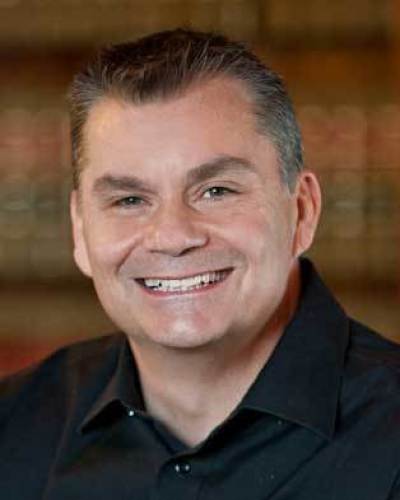Is racism wrong?
Russian philosopher Vladimir Solovyov once said, “Modern people believe this: man descended from apes. Therefore, let us love one another.”

Of course, Solovyov made his statement in a mocking fashion. Despite attempts from secular philosophers and ethicists who try to assert that an evolutionary-based altruism instinct or other such thing impels us to do good to others, Solovyov is right – you can’t link traditional evolutionary teaching and objective morality together.
And yet, perhaps more than ever in the history of humanity, there is widespread belief in the equal treatment of others; that we should be working for the betterment of all people, especially those who are poor, marginalized and oppressed. The only odd thing about that is it contradicts everything we know about naturalistic teaching.
As Solovyov says, most people believe that we came from an unguided process of natural selection, a survival of the fittest where the strong eats the weak, a nature red in tooth and claw. And we’re told it’s been that way for billions of years.
But now all that must stop.
Even though we’re taught that is how nature has worked, and still works, its methods no longer apply to humanity. Greater nations must not overcome lesser nations, fortunate or stronger individuals must not overpower less fortunate or weaker individuals.
And the reason why? Because it’s “wrong”.
Naturalism knows no such thing as “wrong” in that sense. Like humanist Paul Kurtz said, “If man is a product of evolution, one species among others, in a universe without purpose, then man’s option is to live for himself.”
Evolutionary William Provine admitted, “When Darwin deduced the theory of natural selection to explain the adaptations in which he had previously seen the handiwork of God, he knew that he was committing cultural murder. He understood immediately that if natural selection explained adaptations, and evolution by descent were true, then the argument from design was dead and all that went with it, namely the existence of a personal god, free will, life after death, immutable moral laws, and ultimate meaning in life.”
You can’t get here from there
Though difficult to accept, Kurtz and Provine’s conclusions are inescapable if we’re just animals living in a meaningless and purposeless universe. But our schizophrenic secular culture today demands both a commitment to naturalism and objective morality, which is impossible. On the one hand it wants freedom from any transcendent Creator who might impose absolute moral obligations on it, but on the other, it wants to impose its ever-changing-but-absolute-for-right-now moral obligations on others.
The question is, how does our culture support its ethics without God? The natural universe can’t provide an answer because you can’t get moral grounding from amoral matter; it’s metaphysically impossible.
Our democratic process and culture is anything but objective and stable. Moreover, activists have proven they will work tirelessly to overturn laws decided by the majority. Add to that the fact that there are multiple cultures in the world; what one may deem morally correct another could reject.
Science can’t help because as Einstein noted: “You are right in speaking of the moral foundations of science, but you cannot turn round and speak of the scientific foundations of morality.”
Individual opinion doesn’t work because everyone lives in societies where individual opinions clash every second of every day. That puts you back at the sad ending of the Old Testament book of Judges, which describes our current culture pretty well: “everyone did what was right in his own eyes” (Judges 21:25).
This is why the founders of the United States grounded the equality of all people in God; our Declaration of Independence says, “We hold these truths to be self-evident, that all men are created equal, that they are endowed by their Creator with certain unalienable rights, that among these are Life, Liberty and the pursuit of Happiness.”
You won’t find a statement made by any other nation like this – moral grounding, human worth and rights based on a divine creative act.
This is consistently overlooked by our secular society that forgets (1) a government big enough to give you your rights is big enough to take them away, and (2) morals not based in God devolve into pure opinion. As an example, former politician and president of the Human Rights Campaign Cheryl Jacques, who fought so hard for same-sex marriage, had this to say as to why polygamy shouldn’t be legalized: “Because I don’t approve of that.”[1]
So is racism wrong? Should we work to help those struggling in poverty? Do we respect all people and affirm their innate moral worth?
Absolutely. But why?
On the one hand, you have the teachings of naturalism, which Richard Dawkins sums up as: “Life has no design, no purpose, no evil and no good, nothing but blind pitiless indifference.”
On the other, you have the truth of Christianity. And in contrast to Vladimir Solovyov’s thinking, Christians believe this: humanity was created in the image of God. Therefore, let us love one another.
[1] CNN Crossfire (February 24, 2004), Transcript #022401CN.V20.
Robin Schumacher is an accomplished software executive and Christian apologist who has written many articles, authored and contributed to several Christian books, appeared on nationally syndicated radio programs, and presented at apologetic events. He holds a BS in Business, Master's in Christian apologetics and a Ph.D. in New Testament. His latest book is, A Confident Faith: Winning people to Christ with the apologetics of the Apostle Paul.





























